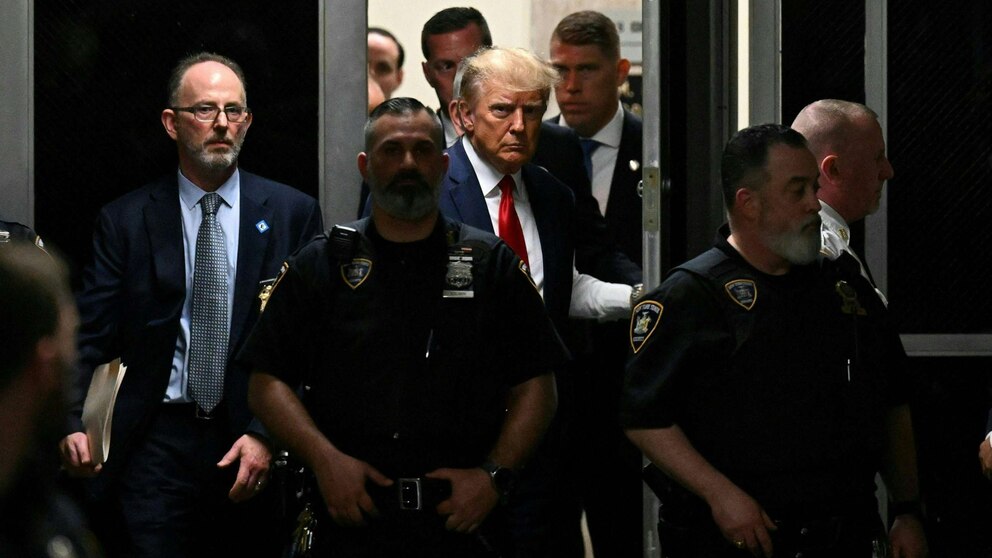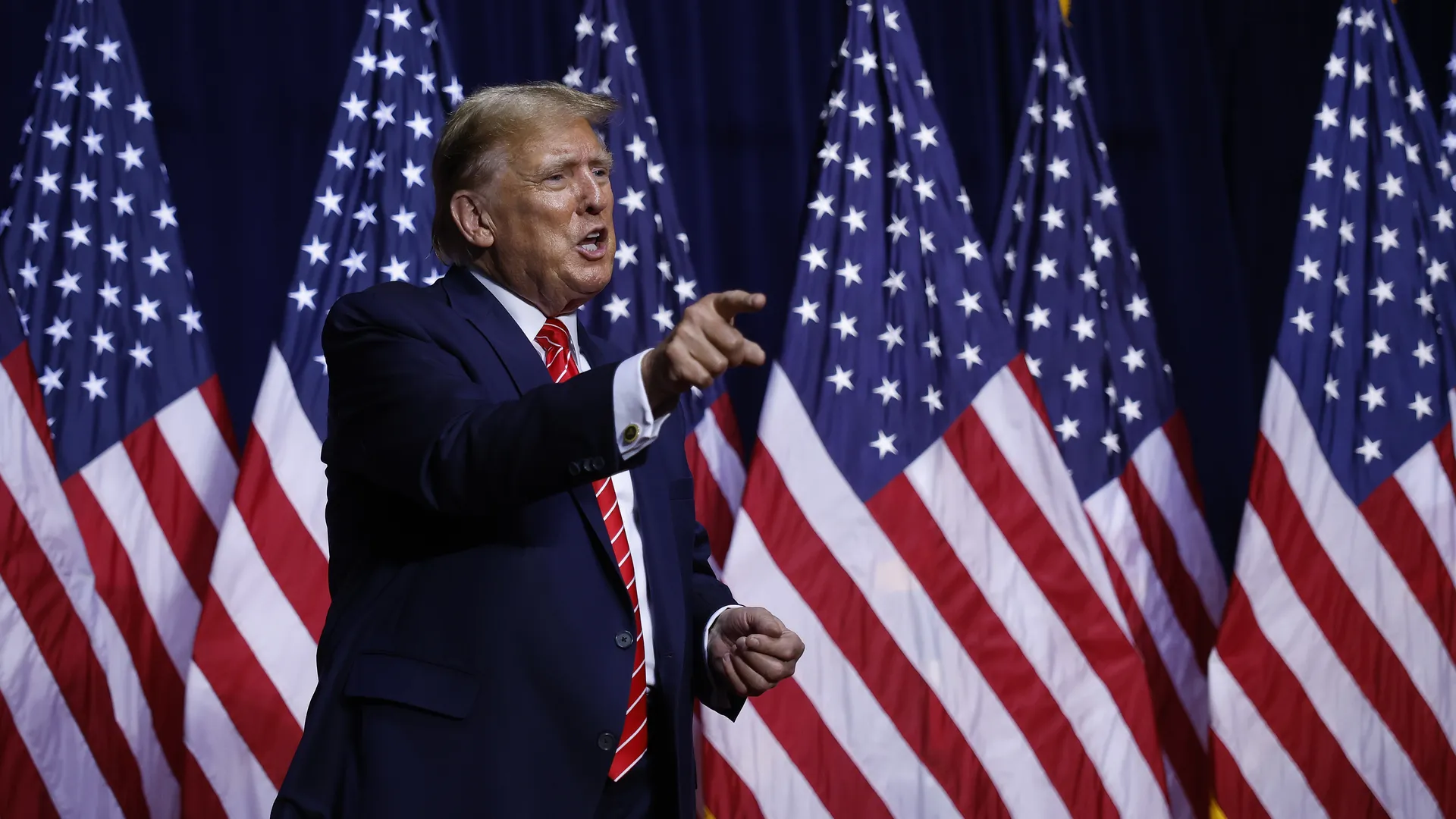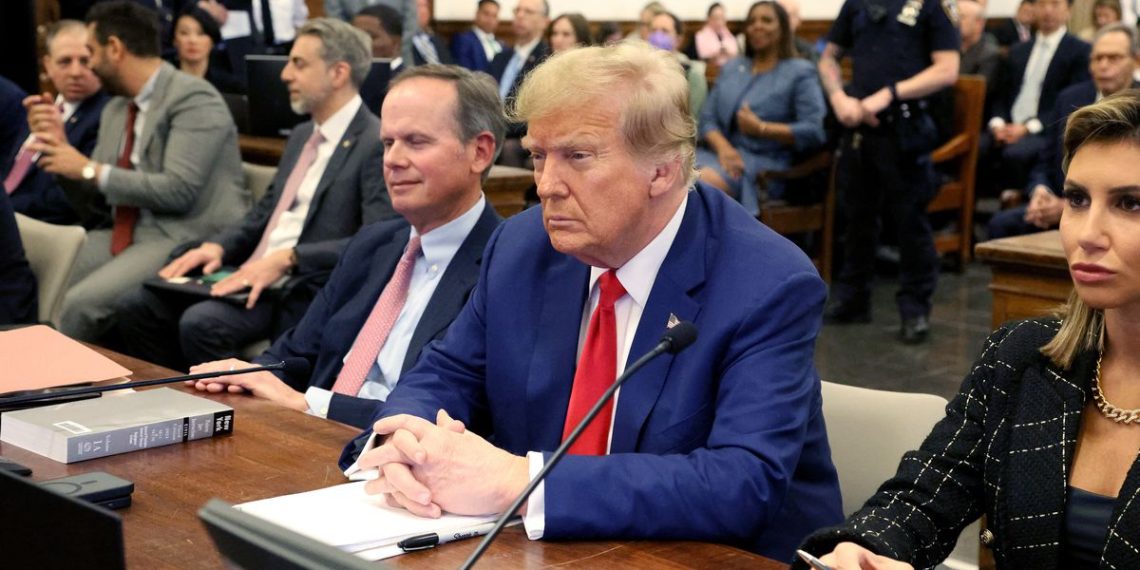Former US President Donald Trump faced setbacks as a New York appellate court rejected his bid to delay his forthcoming trial over falsified documents. Trump, represented by legal counsel Emil Bove, filed three challenges against Judge Juan Merchan, who presides over the case.
These challenges included a motion to lift Merchan’s gag order, a challenge to Merchan’s jurisdiction under Article 78, and a request for a change of trial venue due to perceived bias in Manhattan.
Despite Trump’s efforts, the appellate court denied all challenges, affirming the trial’s scheduled start date of April 15.

During oral arguments before the appellate court, Trump’s legal team and prosecutors from Manhattan District Attorney Alvin Bragg’s office presented their cases. Judge Lizbeth Gonzalez promptly rejected Trump’s application for a trial delay in a concise order.
Yet, Trump’s legal battles continue, with a pending motion for Merchan’s recusal. Trump’s attorneys argued that Merchan’s daughter’s political affiliations and Merchan’s own bias jeopardized a fair trial. Merchan is expected to rule on the recusal motion before the trial begins.
The case against Trump involves 34 counts of falsifying business records linked to alleged hush money payments to adult film star Stormy Daniels during the 2016 presidential election. If the trial proceeds as planned, it will be the first of four criminal cases Trump faces.

Trump’s legal maneuvers underscore the intense scrutiny surrounding his post-presidential legal battles. Despite his efforts, the appellate court’s ruling maintains the trial’s trajectory, emphasizing the significance of the impending legal proceedings.
In the lead-up to the trial, speculation abounds regarding its potential implications for Trump’s political future, particularly amid his ongoing campaign for the 2024 US presidential race.
The outcome of the trial could have far-reaching consequences, shaping public perception and legal outcomes for the former president.





